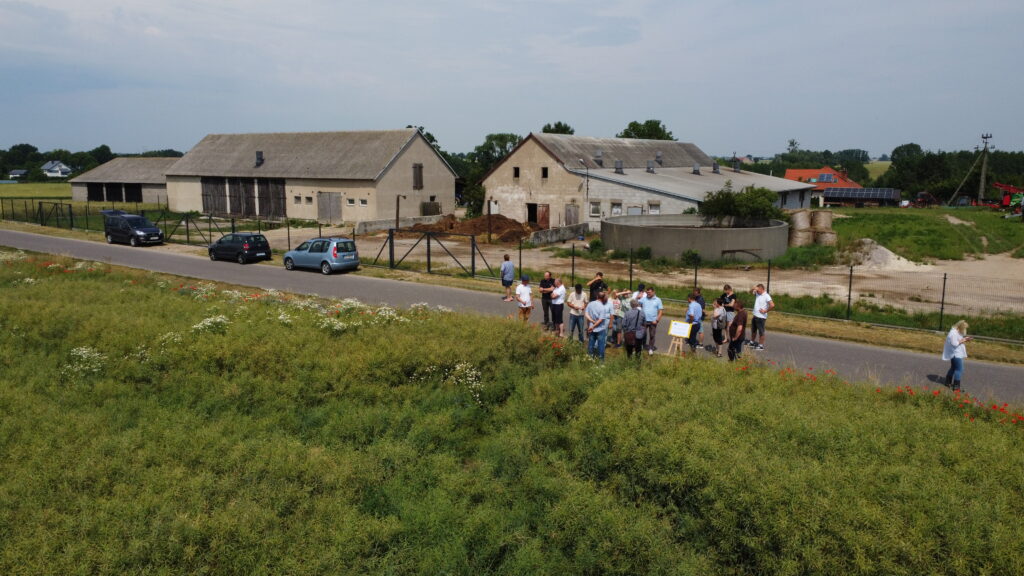Destination: biologization!
Examples of integrated pest management in oilseed rape and winter wheat in Tłuchowo, Poland
Within Farm to Fork Strategy there is great emphasis on biologization and reduction of pesticide use. Those were exactly the methods demonstrated on Jaroslaw Tarnicki’s farm in Tłuchowo, Poland, alongside his system of production of oilseed rape and wheat. His ambition has been to improve biological life in soil, as well as natural decomposition of organic matter and plant pest tolerance.

Mr. Tarnicki is a farmer actively co-creating the IPMWORKS Arable sector hub in Kujawsko-Pomorskie region in Poland. He is single-handedly running 100 ha farm inherited from his father and grandparents in Lipno county. Oftentimes he states that his education in the field of entomology and phytopathology helps him reduce pesticide use and test various strategies for his crops. In 2022, with the help of experts from Kujawsko-Pomorski Agricultural Advisory Centre and private advisors on biologization, he set up several testing plots in oilseed rape and winter wheat with use of beneficial microorganisms, amino-acids, humic acids and natural crumbled soil substrates originating form petrified algae, which have rich composition of microelements. The aim of the trials was to demonstrate that biologization is effective and has many added values, such as improving plant pest tolerance through more balanced nutrition, improving cycle of organic matter in soil and reducing pesticide use. Jaroslaw prioritizes drought and pest resistant varieties for his farm while diversifying crop rotation to minimize pest pressure. His soil tests on organic matter did not show typical lack of organic matter, since cover crops are a must in his cropping system. One of key elements of his farm management is to test new equipment, varieties and other products. Visitors had the opportunity to examine soil profile, which, as Jaroslaw states, is crucial to set up effective cropping strategy. Demonstration took place on 28th June 2022 and over 20 farmers (growers of oilseed rape and wheat) visited. Test plots displayed better resistance and later on improvement in soil microbial diversity. The farmers attending were interested in the strategy, which is not entirely new but rather an enhanced “comeback to the roots” – Jaroslaw stresses that most of the good practices presented have been used by older generations and then forgotten or neglected due to advancement in machinery, fertilization and pesticides.
After satisfactory first year of testing, Jaroslaw decided to continue and expand the use of biologization in the following seasons to other crops, such as sugar beet. Some of it is planned for demonstrations in 2023. Conducting demonstrations, exchanging experience and ideas amongst farmers and advisors proved to be an effective part in advancement towards better cropping systems and with effective reduction in pesticide use.